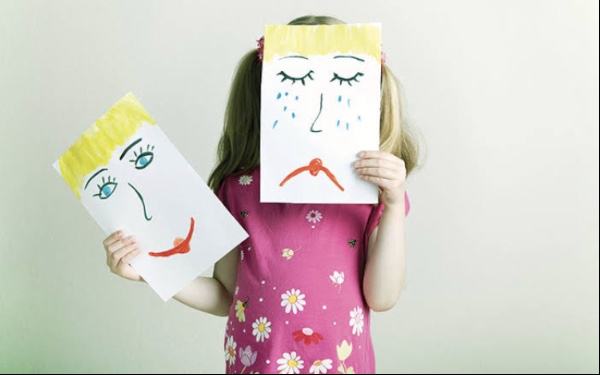It is a common myth around mental health that it only affects adults and not children. However that is not true, National Mental Health Survey (2015-2016), NIMHANS, Bangalore revealed 50 million Indian children suffer from mental health disorders and about 9.8 million Indians aged 13-16 years suffer from serious mental illnesses. WHO (2019), showed that nearly 258075 Indians committed suicide in 2012, which consisted largely of the student population aged 0-19 years.

Children often face a varied range of mental disorders ranging from Intellectual Disability, Autism, Learning Disabilities (including disabilities of Reading, Writing and Arithmetic), which are neuro-developmental in nature, meaning they commence from conception. The other behavioural disorders include ADHD (Inattention, Hyperactivity or the combined type), Oppositional Defiant Disorder (ODD), Conduct Disorder etc. They at times also face childhood anxiety and depression.
The issues that adolescents face are mainly emotional in nature, since it is a period of immense storm and stress. The failure to tackle their emotional upheaval often leads to depression coupled with self harm behaviour and suicidal tendencies. An adolescent might feel propelled towards suicide mostly when their expectations do not match those of reality and they are driven by societal norms for achieving high marks, pressure to look and act a certain way to be accepted by their peer group. Thus, all should realise that that one's academic marks do not define one's future or place in society and should imbibe the qualities of a genuine individual who trusts their own abilities and talents to achieve their aspirations in life.
The aforementioned mental disorders have both a genetic as well as an environmental basis. Environmental Issues include disrupted home environments, broken homes, abuse, poor parenting including neglect or over-parenting to name a few.
Bullying has become a major concern in today's era which can have debilitating effect on both the victim as well as the perpetrators' mind. It can cause immense trauma, anxiety, fear, aloofness, sadness and can also lead to one's lack of ability to form adequate social relationships later on. One has to realise that it so often happens that the person who bullies might not be very aggressive by nature but are using bullying as a means to project their inert sadness onto others and hence deriving a sense of pleasure from it. Thus, always terming the bully as aggressive might worsen the situation, whereas, exploring the root cause behind such behaviour will lead to better results.
After reading about the above mentioned points, one starts to wonder why mental health and especially that of children is not taken seriously in our country. This may be due to the many stigmas, taboos and the fear of being ostracized which are linked with it. This is also why many individuals fear seeking adequate mental health care when required.
In the past, lack of awareness and exploration of mental health has prevented individuals from being categorised under a specific disorder and from knowing the nature of their problem which could help cure them effectively. However, with the advancement of times and adequate research in this field, mental health is now viewed in positive light.v Childhood disorders are often neglected due to lack of parental awareness and fear of being labelled by the society. Parents should be more mindful of their child's developmental milestones and should seek specialized care if any deviation is noted. Early intervention (therapy) along with specialised guidance helps children adapt in a better way with their area of concern/difficulty.
With regard to the underprivileged strata of society, mental health is an unexplored topic. Economic conditions have very often prevented them from seeking relevant help when required. However, with the spread of accurate awareness through media, campaigns and NGO's they are often reached out to and the myths surrounding mental health are attempted to be broken. The country also caters to their special needs at a concession by way of Government hospitals, institutions and NGO's.v In conclusion, Mental Health is taking baby steps towards breaking the taboos, myths and stigmas linked with it. The day we give equal importance to it as compared to physical health is the day we will see a change in our society.